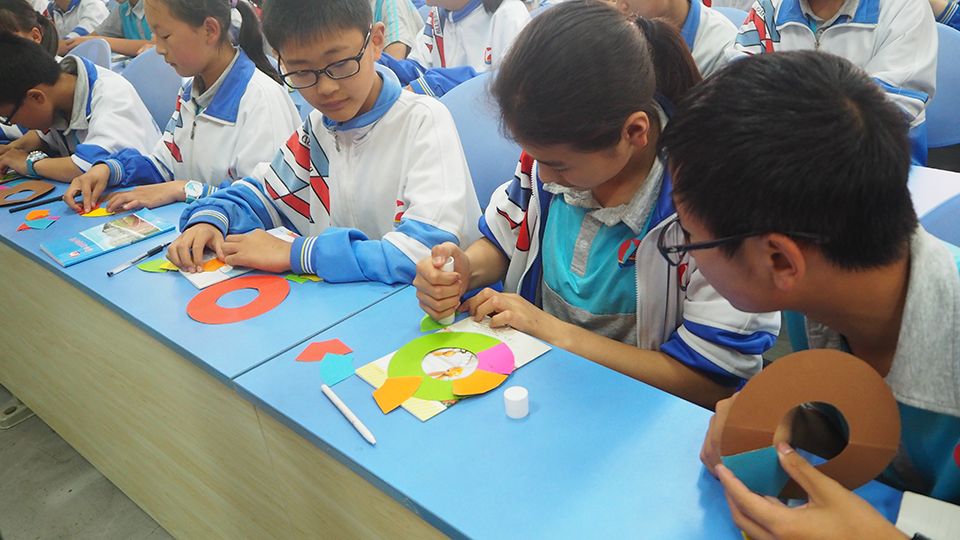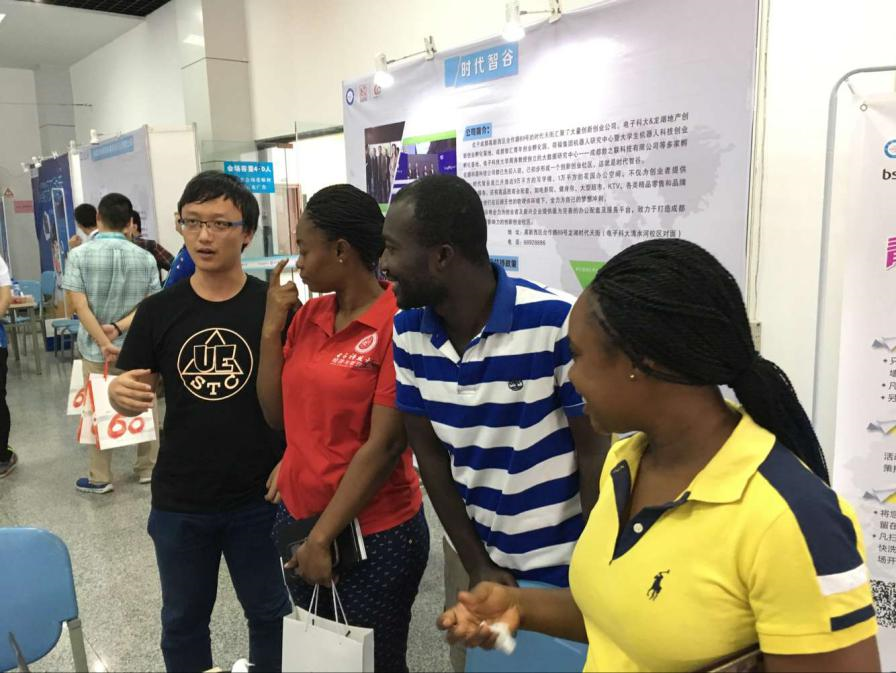| Line 73: | Line 73: | ||
<h2 id="1 Game Development">1 Game Development </h2> | <h2 id="1 Game Development">1 Game Development </h2> | ||
<p>During our research, we found that many people knew little about Biology, especially Synthetic Biology, for lack of channels to spread the information about that. In order to build a bridge for connection, we adopted an original and intelligible way: to develop an Android smartphone game, Bio2048. Bio2048 shows the biological hierarchy concept of degrees drawing on the thought of combination of numbers in the sliding block puzzle game 2048 developed by Gabriele Cirulli. </p> | <p>During our research, we found that many people knew little about Biology, especially Synthetic Biology, for lack of channels to spread the information about that. In order to build a bridge for connection, we adopted an original and intelligible way: to develop an Android smartphone game, Bio2048. Bio2048 shows the biological hierarchy concept of degrees drawing on the thought of combination of numbers in the sliding block puzzle game 2048 developed by Gabriele Cirulli. </p> | ||
| − | <p class="img-p" style="font-size: 13px;"><img src="https:// | + | <p class="img-p" style="font-size: 13px;"><img src="https://static.igem.org/mediawiki/2016/1/16/Uestc-software-silver-10.png"/><br/><B>Fig.2.</B> The interface of Bio2048.</p> |
<p>We uploaded the game to Tencent’s App Store, and utilized those social platforms like Microblog and Qzone to popularize it. On the other hand, we sought for on-the-spot players and communicated with them face to face. Through popularization online and offline, we could learn their attitudes and get helpful feedback that helped us improve our game, making it more easily to be learnt and understood while entertaining. For example, some people told us that they cannot understand what each hierarchy represented for the lack of hint of pictures, and just simply slide the square to obtain higher soccer. Based on this advice, we added learning mode, and realized the true edutainment.</p> | <p>We uploaded the game to Tencent’s App Store, and utilized those social platforms like Microblog and Qzone to popularize it. On the other hand, we sought for on-the-spot players and communicated with them face to face. Through popularization online and offline, we could learn their attitudes and get helpful feedback that helped us improve our game, making it more easily to be learnt and understood while entertaining. For example, some people told us that they cannot understand what each hierarchy represented for the lack of hint of pictures, and just simply slide the square to obtain higher soccer. Based on this advice, we added learning mode, and realized the true edutainment.</p> | ||
<p class="img-p" style="font-size: 13px;"><img src="https://static.igem.org/mediawiki/2016/8/83/Uestc-software-engagement-3.png"/><br/><B>Fig.3.</B>Feedback of Bio2048.</p> | <p class="img-p" style="font-size: 13px;"><img src="https://static.igem.org/mediawiki/2016/8/83/Uestc-software-engagement-3.png"/><br/><B>Fig.3.</B>Feedback of Bio2048.</p> | ||
| Line 89: | Line 89: | ||
<p>And then, the competition of Bio2048 changed parents’ rigid impression of Biology. Encouragingly, a mother who was a Biology teacher thought that Bio2048 was meaningful to education and wanted to bring it in teaching. It was a kind of huge recognition of our work.</p> | <p>And then, the competition of Bio2048 changed parents’ rigid impression of Biology. Encouragingly, a mother who was a Biology teacher thought that Bio2048 was meaningful to education and wanted to bring it in teaching. It was a kind of huge recognition of our work.</p> | ||
<strong>A presentation of our iGEM project on our university’s 60<sup>th</sup> anniversary.</strong> | <strong>A presentation of our iGEM project on our university’s 60<sup>th</sup> anniversary.</strong> | ||
| − | <p class="img-p" style="font-size: 13px;"><img src="https:// | + | <p class="img-p" style="font-size: 13px;"><img src="https://static.igem.org/mediawiki/2016/d/dc/Uestc-software-silver-7.png"/><br/><B>Fig.6.</B> The presentation on our university’s 60<sup>th</sup> anniversary.</p> |
<p>On UESTC’s 60<sup>th</sup> anniversary, we displayed our project, and won a lot of attentions. More than 1000 alumni/alumnae were interested in our items and discussed about computational Biology with our teammates. They provided much precious advice and point a different way for our design in the future. We also attained attentions from some investors who dug out the business potential of our project.</p> | <p>On UESTC’s 60<sup>th</sup> anniversary, we displayed our project, and won a lot of attentions. More than 1000 alumni/alumnae were interested in our items and discussed about computational Biology with our teammates. They provided much precious advice and point a different way for our design in the future. We also attained attentions from some investors who dug out the business potential of our project.</p> | ||
<h2 id="200+ public interviews">200+ public interviews</h2> | <h2 id="200+ public interviews">200+ public interviews</h2> | ||
Revision as of 21:22, 19 October 2016

Engagement
This summer, we developed an edutainment mobile device game, Bio2048. Inspired by the sliding block puzzle game 2048 developed by Gabriele Cirulli, we attached the biological hierarchy concept with the game. Since its release in the early summer, more than 55 downloads have been recorded and it received a 5-star score on Tencent’s App Store. The game is fun to play while young players are attracted to learn more about Synthetic Biology. Furthermore, we organized 3 large public engagement activities: (1) a Synthetic Biology lecture to more than 300 middle school students, (2) a lab-open day for 17 pupils with their parents, and (3) a presentation on our iGEM project to more than 1000 alumni/alumnae on our university’s 60th anniversary. In addition, we gave almost 200 street interviews and opened a Sina’s micro-blog with 1034 followers, which were the source of the statistics of our survey results.

Fig.1. Numbers in our human practice of Education and Public Engagement.
1 Game Development
During our research, we found that many people knew little about Biology, especially Synthetic Biology, for lack of channels to spread the information about that. In order to build a bridge for connection, we adopted an original and intelligible way: to develop an Android smartphone game, Bio2048. Bio2048 shows the biological hierarchy concept of degrees drawing on the thought of combination of numbers in the sliding block puzzle game 2048 developed by Gabriele Cirulli.

Fig.2. The interface of Bio2048.
We uploaded the game to Tencent’s App Store, and utilized those social platforms like Microblog and Qzone to popularize it. On the other hand, we sought for on-the-spot players and communicated with them face to face. Through popularization online and offline, we could learn their attitudes and get helpful feedback that helped us improve our game, making it more easily to be learnt and understood while entertaining. For example, some people told us that they cannot understand what each hierarchy represented for the lack of hint of pictures, and just simply slide the square to obtain higher soccer. Based on this advice, we added learning mode, and realized the true edutainment.

Fig.3.Feedback of Bio2048.
Bio2048 maybe just a beginning of edutainment, in the grand scheme, we want to enrich educational tools like this. So to speak, Bio2048 has run through all of our human practices.
3 Large Activities
A Synthetic Biology lecture to more than 300 middle school students.
Fig.4. The Synthetic Biology lecture.
In the lecture in Puyang Middle School, we talked about the story of Youyou Tu to introduce Synthetic Biology, and brought them into its world step by step. Lacking of knowledge in this field, it's a little difficult for them to understand, which we had considered when we planed the lecture.
Knowing that only talking was too sterile, we decided to lead them to practice by themselves to enhance their understanding and impression. Therefore, we prepared an operation activity that children could build their own plasmids with imaginary function. Through our help and teaching, students comprehended the form of plasmids directly and mastered the most fundamental knowledge about Synthetic Biology. After the activity, many students asked us for contact information and wanted to know more, which made us feel grateful.
Besides, we brought Bio2048 for the first time to try its effect. Surprisingly, students played it with enormous interests and some of them even asked us about how to download it. The smooth bring-in made us more firm to continue Bio2048.
A lab-open day for 17 pupils with their parents.
Fig.5.The lab-open day.
Youth, the future of country development, should have a broader field of vision and dabbled at more domains. So as to make students in primary school contact Synthetic Biology earlier and culture their interests, we had a lab-open day, “To be the Scientist Tomorrow”.
We gathered some students in Grade 6 and 7 and their parents through online sign-up. They felt curious about everything in lab with relaxing atmosphere. We also extracted DNA from bananas, after which they said that it was amazing that Biology can be played like this.
And then, the competition of Bio2048 changed parents’ rigid impression of Biology. Encouragingly, a mother who was a Biology teacher thought that Bio2048 was meaningful to education and wanted to bring it in teaching. It was a kind of huge recognition of our work.
A presentation of our iGEM project on our university’s 60th anniversary.
Fig.6. The presentation on our university’s 60th anniversary.
On UESTC’s 60th anniversary, we displayed our project, and won a lot of attentions. More than 1000 alumni/alumnae were interested in our items and discussed about computational Biology with our teammates. They provided much precious advice and point a different way for our design in the future. We also attained attentions from some investors who dug out the business potential of our project.
200+ public interviews
We adopted the way of man-on-the-street interview to express the ideas of synthetic biology. We wanted to use our own ability to influence others, so we visited different communities in Chengdu. As we all know, communities are places that contain a large quantity of citizens. More importantly, all of them comes from the different jobs. So, communities are the best place for us to work.

Fig.7.The man-on-the-street interviews.
At the beginning, the security guards stopped us when we put up the posters in communities. We explained sincerely and hoped they permitted us. They were moved by us. Not only they agreed with our actions, but also they took part in our group and helped us interview the pedestrians. To be honest, we found that most of people refused to be interviewed. So we changed the strategy. We tried to create a relaxing atmosphere and discussed with them.

Fig.8.We put up the posters in communities.
Synthetic Biology is closely linked to our daily life. Many people care about the problems of Biology such as the harm of genetically modified food. Due to the poor propaganda of science on the public media, most of people did not know about the synthetic Biology. What we did changed the old situations by our knowledge. Most of them changed like the security guards. They would like to share their own views and gave us a lot of advice and hope us to change the embarrassing condition of synthetic Biology. We will work harder, enforce advertising and pay attention to the project.
1034+ online followers
We owned a Microblog account with 1034 online followers and posed our daily work and the knowledge of synthetic Biology. We expect that everyone can understand Synthetic Biology and care about what we do now.

Fig.9. Our Sina’s microblog account.
We believe that as long as we pay, there will be a return. I hope that this account can be inherited by generations because it is on behalf of our spirit and it witnessed our dialogue with people. We want to see the increase of our followers, the larger of our group and the value of our effort.
During working in iGEM, we were not limited by the traditional activities. We used interesting ways to connect with the public and design the educational tool. We led the public to focus on synthetic biology. Only if they pay attention to it, can it develop day by day and make sense to human being.



 CATALOGUE
CATALOGUE